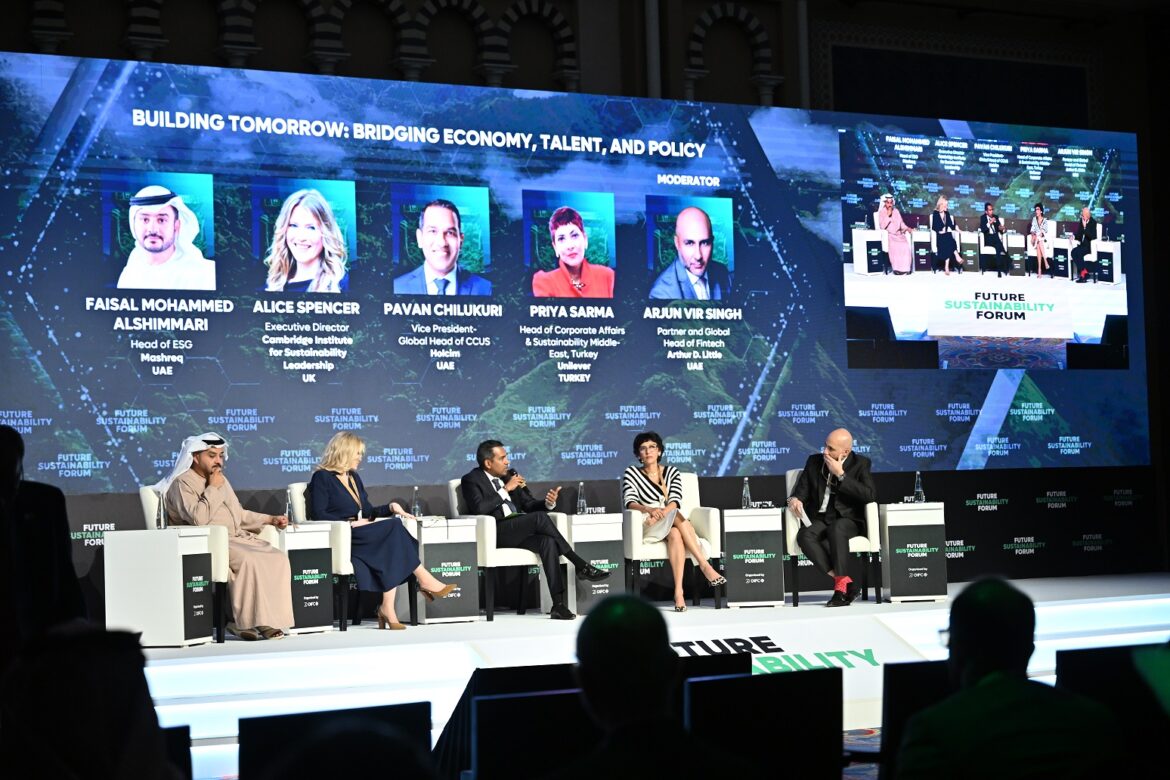In an effort to increase sustainability efforts in the region, the Dubai International Finance Centre (DIFC) has unveiled its Decarbonisation Strategy. The Centre will play a vital role in contributing to the UAE Net Zero 2050 strategic initiative by committing to achieve its Net Zero targets by 2045.
In its Decarbonisation Strategy, DIFC targets reducing emissions in areas it directly controls relating to its operations, construction activities and supply chain, setting an example for financial centres worldwide. DIFC’s Decarbonisation Strategy aims to achieve real Net Zero without offsetting or trading carbon emissions.
The Decarbonisation Strategy was announced at the 2nd edition of the Future Sustainability Forum, which also served as a platform to launch DIFC’s inaugural Sustainability Progress Report titled ‘Building a Sustainable Future: DIFC’s Path to Impact’, which details achievements and a roadmap for sustainability.
The Forum also hosted the Climate Tech World Cup – organised by Trescon and powered by Ignyte, it is a call to action for entrepreneurs, innovators and visionaries from across the globe. Participants were encouraged to present their ideas and solutions to address pressing environmental challenges. Finalists included Acklo, Baynunah, Watergeneration Technologies, Green Worms, Mahawa, The Surpluss, Sirius Energy and Zeroe.
“The Future Sustainability Forum serves as a critical platform that enables global collaboration, knowledge sharing, and finding practical solutions for climate change and sustainable development”, said His Excellency Essa Kazim, Governor of DIFC.
“In light of COP29 outcomes, we are pleased to announce DIFC’s Decarbonisation Strategy, where we are setting new standards for environmental leadership. We remain at the forefront of solidifying Dubai’s position as the leading sustainable financial city in the region. Today, we are setting a new benchmark for decarbonisation within global financial centres and aim to achieve Net Zero in 2045, five years ahead of the UAE’s targets.”
Figures from Bloomberg’s Capital Markets League Tables has showed that annual issuances of green social, sustainable, and sustainability-linked bonds (GSSB) in the Middle East and North Africa (MENA) in 2023 hit a new record of USD 24bn, driven by the UAE and Saudi Arabia. The UAE leads regional green bond issuance, recently reaching USD 10.7bn, up nearly 170 per cent and capturing approximately 45 per cent of regional totals.
Launched during COP28, the DIFC Sustainable Finance Catalyst is a cornerstone initiative in supporting start-ups and innovation in the sustainable economy by scaling sustainable financial flows from Dubai to USD 100bn by 2030, enabled by the first AI-driven sustainability knowledge hub. A workstream for the Future Sustainability Forum will be added to the 2025 Dubai FinTech Summit, creating opportunities for cross-sectoral growth between sustainability, ESG and innovation.
Bringing together 3,000 industry leaders, government officials, and sustainability experts to explore innovative solutions for achieving net-zero targets, advancing sustainable finance, and driving sustainability-led innovation, the Future Sustainability Summit hosted over 500 global investors and more than 100 speakers.



